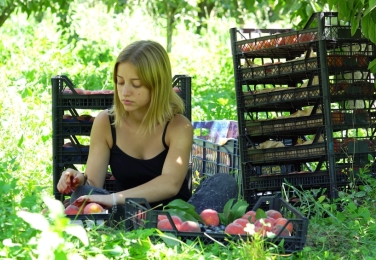26 September 2017
 When Deputy Prime Minister Barnaby Joyce suggested people locked out of the Sydney property market should simply solve all their problems by moving to the country, he was perhaps underestimating just how dynamic regional and rural communities have become.
When Deputy Prime Minister Barnaby Joyce suggested people locked out of the Sydney property market should simply solve all their problems by moving to the country, he was perhaps underestimating just how dynamic regional and rural communities have become.
The stereotype of stable, bucolic, unchanging country towns, untouched by same stresses of cosmopolitan, globalised urban centres, is actually a far cry from the reality. Regional communities are changing.
In an important workshop being held at UniSA’s Mt Gambier campus today, researchers, local government and business representative will be discussing the real experience of regional and rural communities impacted by a range of population changes, from refugee and migrant settlement, to tree and sea changers, aging populations and the exodus of young people from regional communities.
Leading the workshop from UniSA’s Hawke European Union Centre for Mobilities, Migrations and Cultural Transformation, sociologist Dr David Radford says the purpose of the workshop is to look at what we might refer to as the “global countryside”.
“The changes occurring in rural communities in Australia are also happening to country communities around the world,” Dr Radford says.
“The impact of mobility to and from country communities is far reaching, touching labour and capital, social and cultural diversity, education, health, development, local government and social cohesion.
“This workshop will feature not only academic research but also presentations from communities themselves looking at the challenges and opportunities inherent in welcoming, in particular, refugee and migrant populations to regional communities across Australia.
“We will hear from local councils, community and business leaders as well as the mobility and migration experiences of other countries including Germany and New Zealand.”
Dr Radford says even moderate shifts in the demographics of rural and regional communities have an impact.
“Rural mobility is about more than just people movement between locations,” Dr Radford says.
“It is about changes in identity and meaning for regional communities – how that is managed in a positive and productive way can make all the difference so we hope to share experiences, learn from other communities and help prepare for the consequences of change in rural and regional communities.”
The workshop is sponsored by UniSA’s Hawke EU Centre for Mobilities Migrations and Cultural Transformations in association with La Trobe University Centre for the Study of the Inland.
Media contact: Michèle Nardelli mobile 0418 823 673 email michele.nardelli@unisa.edu.au




